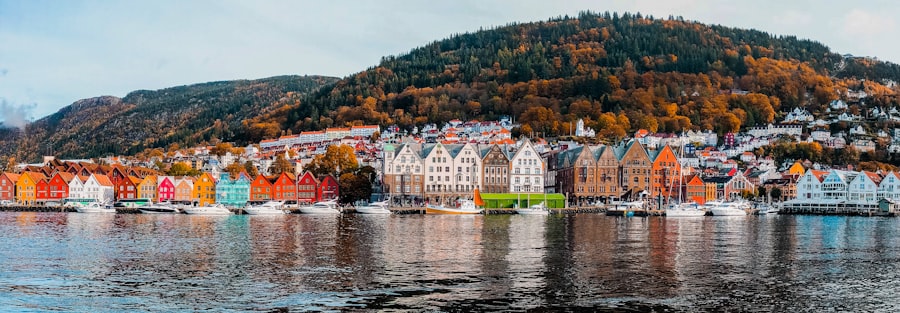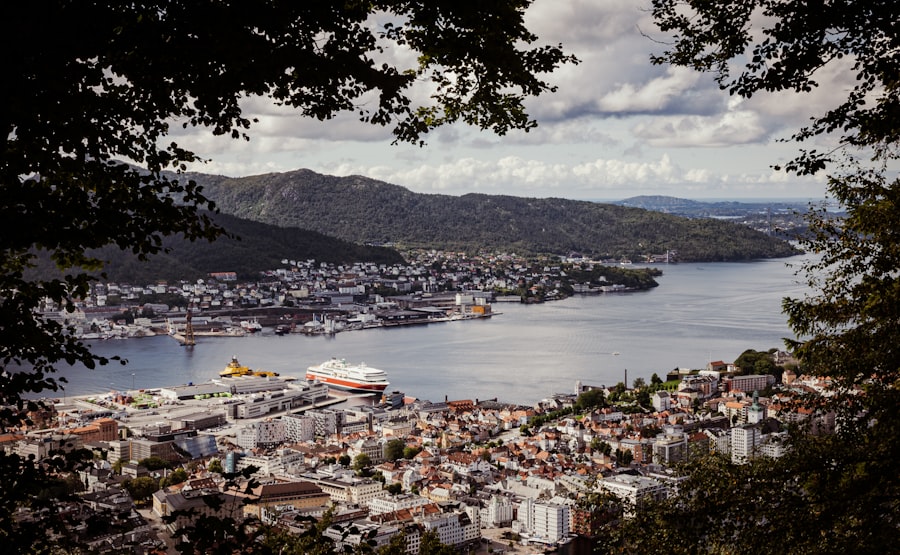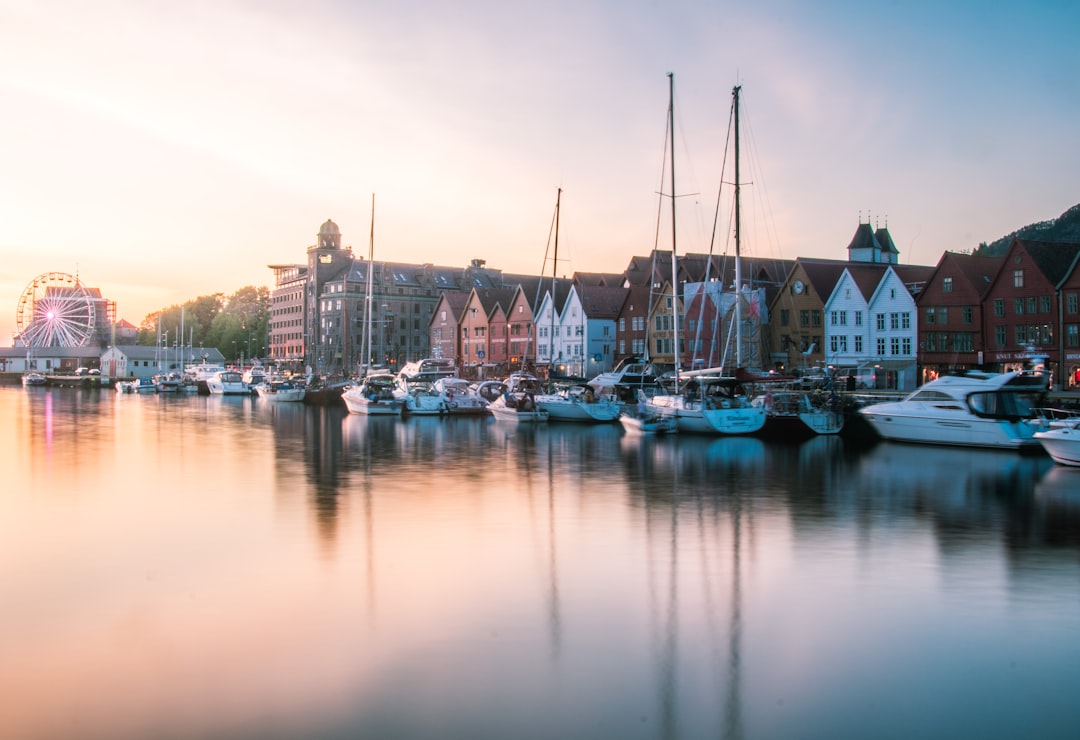In Norway, the festive season is marked by two significant days: Første Juledag, or Christmas Day, and Andre Juledag, known as Boxing Day. These days are not merely a continuation of the holiday spirit but are steeped in rich traditions and cultural significance. For many Norwegians, these days represent a time for family gatherings, reflection, and celebration.
The atmosphere is imbued with warmth and joy, as families come together to honour age-old customs while also creating new memories. The importance of these days extends beyond mere festivities; they encapsulate the essence of Norwegian culture and community. As the winter solstice approaches, the long nights are brightened by the spirit of Christmas, making it a cherished time for both young and old.
Understanding the significance of Første Juledag and Andre Juledag offers a glimpse into the heart of Norwegian society, where traditions are preserved and celebrated with fervour. Your journey to a smooth relocation starts here. Talk one-on-one with a Norway Relocation specialist and turn your plan into a reality.
Summary
- Første Juledag & Andre Juledag are Christmas Day and Boxing Day in Norway
- Christmas Day and Boxing Day have historical significance in Norway
- Traditional Norwegian Christmas Day celebrations include attending church and spending time with family
- Norwegians celebrate Boxing Day with outdoor activities and sports
- Traditional Norwegian Christmas Day foods include ribbe (pork ribs) and pinnekjøtt (dried and salted lamb ribs)
The History of Christmas Day and Boxing Day in Norway
The history of Christmas Day in Norway can be traced back to ancient pagan traditions that celebrated the winter solstice. With the arrival of Christianity in the 11th century, these customs began to intertwine with Christian beliefs, leading to the establishment of Christmas as a significant religious holiday. Over the centuries, Første Juledag evolved into a day dedicated to celebrating the birth of Jesus Christ, marked by various rituals and customs that reflect Norway’s unique cultural heritage.
Boxing Day, or Andre Juledag, has its roots in the tradition of giving gifts to those in need. Historically, it was a day when the wealthy would distribute food and money to the less fortunate. In Norway, this day has transformed into a time for family gatherings and outdoor activities, reflecting a blend of historical significance and modern-day practices.
The evolution of these two days illustrates how Norwegian society has adapted its traditions while maintaining a strong connection to its past.
Traditional Norwegian Christmas Day Celebrations

On Første Juledag, Norwegians engage in a variety of traditional celebrations that highlight their cultural heritage. The day typically begins with a festive breakfast featuring an array of delicacies such as rice porridge, often served with cinnamon and sugar. Families gather around the table to share stories and enjoy each other’s company, setting a warm tone for the day ahead.
As the day progresses, many families attend church services to commemorate the birth of Christ. This spiritual observance is an integral part of Christmas Day for many Norwegians, reinforcing the religious significance of the holiday. Following the service, families return home to partake in a lavish Christmas dinner, which often includes roasted meats, potatoes, and an assortment of traditional side dishes.
The evening culminates in the exchange of gifts, a moment filled with excitement and joy as loved ones unwrap presents that have been carefully chosen for them.
How Norwegians Celebrate Boxing Day
Andre Juledag is often seen as a continuation of the Christmas festivities rather than a separate event. Many Norwegians take this opportunity to relax and enjoy time with family and friends. It is common for people to visit relatives or host gatherings at home, where they can share stories and reminisce about the past year.
The atmosphere is typically more laid-back compared to Christmas Day, allowing families to unwind after the hustle and bustle of the previous day. Outdoor activities are also popular on Boxing Day. Many Norwegians take advantage of the winter landscape by engaging in skiing or snowboarding, embracing the natural beauty that surrounds them.
This connection to nature is an essential aspect of Norwegian culture, and Boxing Day provides an ideal opportunity for families to bond over shared experiences in the great outdoors.
Traditional Norwegian Christmas Day Foods
Food plays a central role in Norwegian Christmas celebrations, with each dish carrying its own significance and history. On Første Juledag, families often indulge in a feast that showcases traditional Norwegian cuisine. One of the most popular dishes is ribbe, or roasted pork belly, which is typically served with sauerkraut and potatoes.
This hearty meal reflects Norway’s agricultural roots and is a staple at many Christmas tables across the country. Another beloved dish is lutefisk, which consists of dried fish that has been soaked in lye before being rehydrated and cooked. While it may not be to everyone’s taste, lutefisk holds a special place in Norwegian culinary tradition and is often served alongside potatoes and white sauce.
Desserts also play a significant role in Christmas feasting, with options like krumkake (a delicate waffle cookie) and multekrem (cloudberries mixed with whipped cream) delighting sweet-toothed revelers.
Boxing Day Activities in Norway

Boxing Day in Norway is characterised by a blend of relaxation and outdoor adventure. Many families take advantage of this day to engage in winter sports such as skiing or ice skating. The picturesque landscapes provide an ideal backdrop for these activities, allowing families to bond while enjoying the beauty of nature.
Ski resorts across Norway become bustling hubs of activity as people flock to enjoy the slopes. In addition to outdoor pursuits, many Norwegians also take part in social gatherings on Andre Juledag. It is common for friends and family to visit one another’s homes, sharing food and laughter while reflecting on the joys of the holiday season.
This sense of community is vital during this time of year, as it reinforces connections between loved ones and fosters a spirit of togetherness.
The Role of Family and Community in Norwegian Christmas Traditions
Family is at the heart of Norwegian Christmas traditions, with both Første Juledag and Andre Juledag serving as opportunities for loved ones to come together. The emphasis on familial bonds is evident in the way celebrations are structured; meals are often prepared collectively, and activities are designed to include everyone from grandparents to young children. This focus on family creates lasting memories that are cherished for years to come.
Community also plays a significant role during this festive season. Many towns and villages organise events that bring people together, such as Christmas markets or local concerts. These gatherings foster a sense of belonging and unity among residents, reinforcing the idea that Christmas is not just an individual celebration but a communal experience that strengthens ties within society.
Religious Significance of Første Juledag & Andre Juledag
The religious significance of Første Juledag cannot be overstated; it is a day dedicated to celebrating the birth of Jesus Christ and reflecting on his teachings. For many Norwegians, attending church services on Christmas Day is an essential part of their holiday observance. These services often feature traditional hymns and readings from the Bible that recount the nativity story, allowing congregants to connect spiritually with the meaning behind the holiday.
Andre Juledag also holds religious importance as it continues the themes of reflection and gratitude established on Christmas Day. Many people take this opportunity to contemplate their blessings and express their appreciation for family and community support throughout the year. This spiritual aspect adds depth to the celebrations, reminding individuals of the values that underpin their traditions.
Modern Celebrations and Customs on Christmas Day and Boxing Day in Norway
While traditional customs remain integral to Norwegian Christmas celebrations, modern influences have also made their mark on how these days are observed. In recent years, there has been a growing trend towards incorporating contemporary elements into holiday festivities. For instance, many families now opt for more diverse menus that include international dishes alongside traditional fare.
Additionally, technology has transformed how people connect during this time. Social media platforms allow families separated by distance to share their celebrations virtually, bridging gaps that may have once felt insurmountable. Despite these modern adaptations, the core values of love, togetherness, and gratitude remain steadfastly at the forefront of Norwegian Christmas celebrations.
Unique Norwegian Christmas Decorations and Ornaments
Norwegian Christmas decorations are distinctive and often reflect the country’s natural beauty and cultural heritage. Traditional ornaments include hand-carved wooden figures known as nisser—mythical creatures believed to protect homes during winter months. These charming decorations can be found adorning trees and mantels across Norway during the festive season.
In addition to nisser, many households display woven straw ornaments that represent various symbols associated with Christmas. These decorations not only add a rustic charm but also serve as reminders of Norway’s agricultural roots. The use of natural materials in holiday decor highlights a deep connection to nature that is prevalent throughout Norwegian culture.
How to Say “Merry Christmas” and “Happy Boxing Day” in Norwegian
To fully immerse oneself in Norwegian Christmas traditions, learning how to express festive greetings can enhance one’s experience significantly. “Merry Christmas” translates to “God Jul” in Norwegian—a phrase that encapsulates warmth and goodwill during this special time of year. Similarly, “Happy Boxing Day” can be expressed as “God Andre Juledag,” allowing individuals to extend their best wishes beyond just Christmas Day.
These simple phrases not only facilitate communication but also demonstrate respect for Norwegian culture and traditions. Embracing language can deepen connections with locals during this festive season, fostering an appreciation for the rich tapestry of customs that define Norwegian celebrations. In conclusion, understanding Første Juledag and Andre Juledag offers valuable insights into Norwegian culture and traditions surrounding Christmas.
From historical roots to modern adaptations, these days are filled with joy, reflection, and community spirit. As you explore these customs further or consider relocating to Norway during this festive season, organisations like the Norway Relocation Group can provide invaluable assistance in navigating your transition smoothly. Moreover, if you wish to immerse yourself fully in Norwegian culture while enhancing your language skills, consider enrolling in courses at the NLS Norwegian Language School in Oslo.
These courses will not only help you learn essential phrases but also deepen your understanding of Norway’s rich heritage—making your experience during Første Juledag and Andre Juledag all the more meaningful.
Register for a Norwegian class at the NLS Norwegian Language School now!

